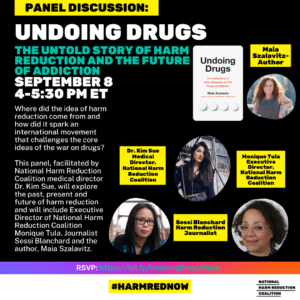
I hope I might share this book with my parents one day. I’m grateful for the gentle nudge this book provided to rethink my beliefs. As a person who prides myself on my compassionate approach when facing challenges, I was floored to realize I had completely soaked up conventional negative views on addicts/addiction from my parents, both of whom had had their own idealogical and experience-based reasons for embracing tough love rhetoric. ‘Undoing Drugs’ did not disappoint!! The anecdotes and data-driven conclusions were incredibly interesting and, I think more importantly, effective at prompting critical self-reflection. I really enjoyed listening to this book!! I first encountered Szalavitz’s work when I listened to ‘The Boy Who Was Raised as a Dog.’ I was so profoundly impacted by the stories that once I finished the book, I immediately looked up Szalavitz’s other work. Ultimately, Undoing Drugs offers a path forward - revolutionizing not only the treatment of addiction, but also our treatment of behavioral and societal issues. It is also about how personal, direct human connection and kindness can inspire profound transformation. It illustrates how hard it can be to take on widely accepted conventional wisdom - and what is necessary to overcome this resistance. In a spellbinding narrative rooted in an urgent call to action, Undoing Drugs tells the story of how a small group of committed people changed the world, illuminating the power of a great idea. And it provides a way of understanding behavior and culture that has relevance far beyond drugs. Developed and championed by an outcast group of people who use drugs and by former users and public health geeks, harm reduction offers guidance on how to save lives and improve health.


However, it runs counter to much of the received wisdom of our criminal and medical industrial complexes.

There is another way, one that is proven to work.

In the name of “sending the right message", we have maximized the spread of infectious disease, torn families apart, incarcerated millions of mostly Black and Brown people - and utterly failed to either prevent addiction or make effective treatment for it widely available. But we have tried to solve this national crisis with policies that only made matters worse. From “one of the bravest, smartest writers about addiction anywhere” (Johann Hari, New York Times best-selling author) - the untold story of harm reduction, a surprisingly simple idea with enormous power.ĭrug overdoses now kill more Americans annually than guns, cars, or breast cancer.


 0 kommentar(er)
0 kommentar(er)
